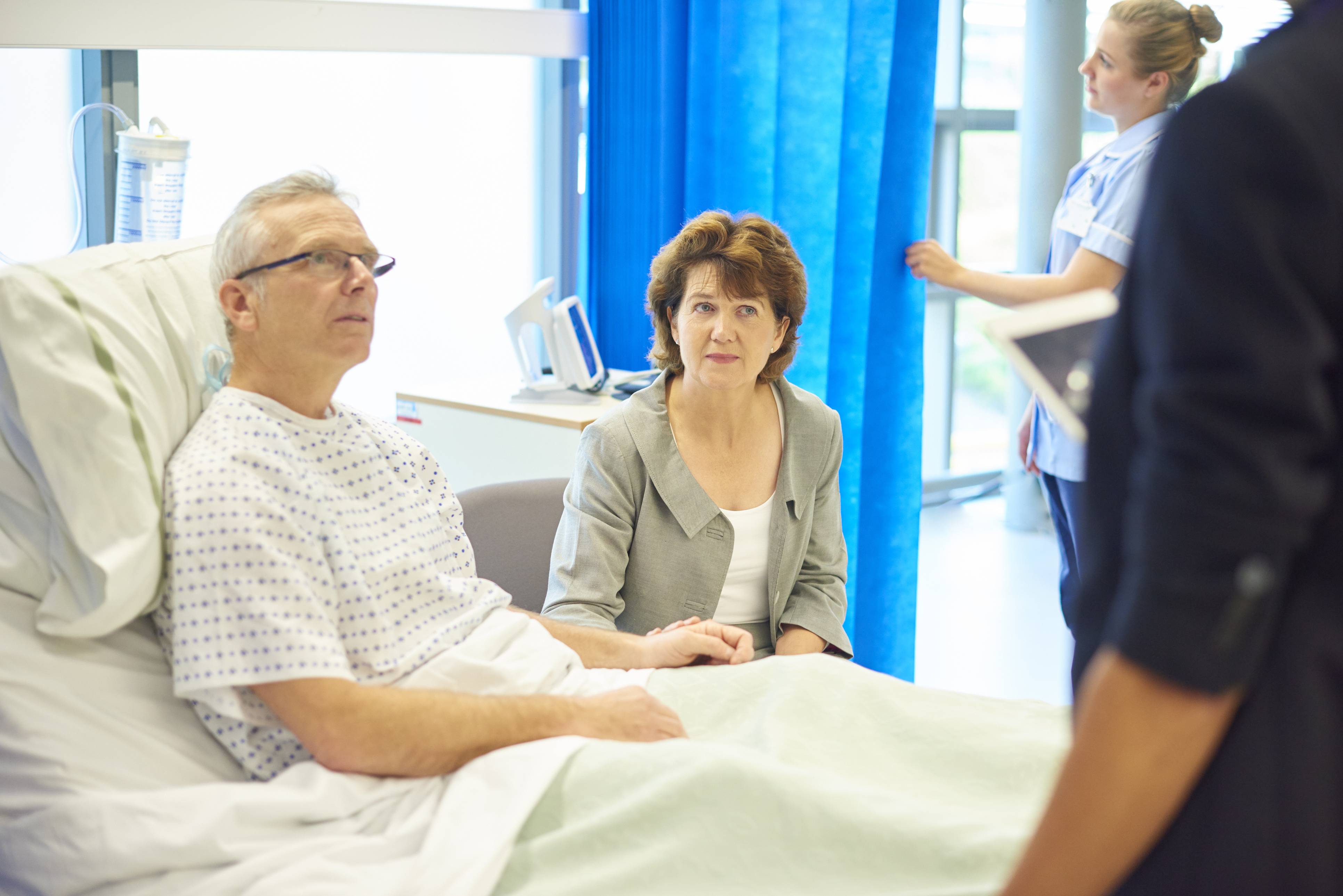Optimum Wellness Presented by King Soopers
Author- Dr. James Rouse
September is designated as National Prostate Health Month. We discovered it when doing research for an article on National Breast Health Month (which happens in October). So it got us thinking, are breasts more important than prostates? We have three day walks and hundreds of 5-Ks dedicated to spreading awareness and raising funds for breast cancer, so why are we so quiet when it comes to prostate health awareness? Just how important are prostates?
Turns out that estimates from the American Cancer Society predict that in 2014 about 233,000 new cases of prostate cancer will be diagnosed and 29,480 will die of prostate cancer. One out of seven men will be diagnosed with prostate cancer at some point in their life and six out of ten men over age 65 have some form of prostate cancer. Prostate cancer is the second leading cause of cancer death in men (lung cancer is the first). Over 2.5 million men in the U.S. have been diagnosed with prostate cancer and are still alive today.
Interesting that the statistics aren’t so different for breast cancer. One in eight women will develop invasive breast cancer (According to estimates from the American Cancer Society, 232,670 individual cases of breast cancer will be newly diagnosed in 2014 (2360 of those will be men). About 40,000 (430 men) will die from breast cancer. Breast cancer can effect both men and women and perhaps that is indeed the reason it gets more attention – but the statistics are very similar and prostate cancer awareness certainly deserves a bit more recognition.
So what are some of the signs and symptoms of prostate cancer and what, if anything, can men do to help prevent it? First of all, prostate cancer is diagnosed when abnormal cell are found in the prostate gland, which is a walnut sized gland located approximately between the bladder and the rectum. The abnormal/cancerous cells can replicate quickly and spread to other parts of the body. Some men won’t experience any symptoms at all. Others may have increased frequency in urination, weak urinary flow, painful urination, difficulty in starting or stopping urination, blood in urine or semen, difficulty in having an erection, pain with ejaculation, or pain in the lower back or hips.
Prostate cancer prevention begins with self-care. Maintaining a healthy body weight, getting daily exercise, consuming omega-3 fats from fish and/or ground flax, walnuts, hemp seeds, chia seeds, cruciferous vegetables like kale, broccoli, cabbage, cauliflower, and getting adequate fiber (about 25 to 30 grams minimally) all help to decrease prostate cancer risk. There are several herbs and spices that have been shown to either help prevent prostate cancer or slow the growth of abnormal cells. These include turmeric (curcumin), garlic, saw palmetto, milk thistle, stinging nettle, and reishi mushroom. Dietary supplements including quercetin, resveratrol, melatonin, and modified citrus pectin have all exerted some form of anticancer activity in animal or in-vitro studies. Prior to self-diagnosing or self-treating with any form of medicine, it is prudent to consult your personal health care provider.
Dietarily, the best preventive measures when it comes to prostate cancer and most cancers is to eliminate any and all trans (partially hydrogenated) fats, deep fried foods, dairy products (especially non organic), charred meats (most often from grilling at too high of temperature), and processed lunch meats that usually contain nitrites or nitrates. Pomegranate seeds and juice, again cruciferous (cabbage family) vegetables, garlic, ginger, and fresh fruits and vegetables plus organic whole grains are good bets. Alcohol and tobacco use increase risk of prostate cancer so total avoidance is recommended.
And finally regular exercise and fresh air are an essential part of self-care. Cancer screening tests such as the PSA (prostate specific antigen) blood test and the digital rectal exam both have pros and cons. Doctors and experts differ in their recommendations about who should get a PSA screening test. This is again, why it is so important for men to maintain a consistent relationship with their doctors.


